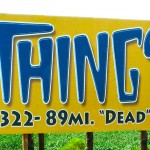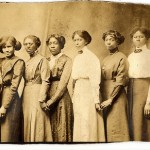“A man sees in the world what he carries in his heart.” Johann Wolfgang von Goethe; Faust
“Let them have a laugh at their passions, because what they think is some grand emotional energy is in reality just their souls scraping against the world.” Stalker (1973)
Academia in the 21st Century has predominantly concerned itself with novelty in scholarship. Its desperate pursuit for the “new” – to “redefine”, “rewrite”, “challenge existing notions”, to be “distinctive” and “fresh” – has ultimately led to a logical dead-end. The terminus, as Vladimir Alexandrov notes, is a “[concept] of originality in terms of an author’s dialectical reaction against contemporary critical approaches and traditions….” The outcome of this is a culture in which each individual response demands to be treated as novel, unique, and most detrimental to academic scholarship, unimpugnable – after all, it is impossible to analyze or evaluate a reaction, it can only be agreeable or disagreeable.
This schema has trickled down to the broader sphere of public discourse, where we find the loudest and most prolific voices more concerned with constructing a bad-faith narrative based on an intentionally narrow reactive interpretation of a concept (usually determined by their allegiance to a self-defined social or political group or, more regularly, sub-group) than they are with achieving a comprehensive understanding of it through dialogue and critique.
There is inevitable frustration here, because it is impossible to construct a coherent worldview from a purely reactionary position. When critique becomes anathema, echo chambers appear, amplifying and radicalizing ideas ad absurdum. The untenable belief in a singular interpretation of an ideal or event, and the tenacious compulsion to convince others of its correctness coupled with an inability to properly receive or give critique, has given rise to fear, distrust, and ultimately, animosity.
This erosion of trust has fundamentally weakened our nation’s institutions. I will not argue that oversight is required and necessary for both public and private entities, but oversight is not skepticism, and what we are seeing now is widespread skepticism requiring not transparency, but apologia of any and every action taken. For Jonathan Haidt, this presents a very special problem for education:
When people lose trust in institutions, they lose trust in the stories told by those institutions. That’s particularly true of the institutions entrusted with the education of children. History curricula have often caused political controversy, but Facebook and Twitter make it possible for parents to become outraged every day over a new snippet from their children’s history lessons––and math lessons and literature selections, and any new pedagogical shifts anywhere in the country. The motives of teachers and administrators come into question, and overreaching laws or curricular reforms sometimes follow, dumbing down education and reducing trust in it further.
What this ultimately creates, then, is a systematic degradation of not just faith in education, but of the conceptualization of education itself, and any attempt to ameliorate this degradation only degrades it further.
To most, this may seem like a zero-sum scenario, but I argue that the opposite is just as true: if any act produces outrage then outrage is inevitable, enabling us as educators to make broad strides in both methods and curriculum.
What is necessary, and what I strive to do in my classroom, is to create a culture of criticism. In my experience students fear criticism, and equate it with a kind of failure. In reality, however, it is vitally necessary to critique and be critiqued – to take the focus away from a one-off grade and the rigor mortis of “right” and “wrong” and reveal the process required for learning and understanding. It reveals that every idea, system, and person is neither perfect nor static, and that it is through critique that these ideals can truly be understood and appreciated.
Criticism is not a tearing down of ideas. Criticism is neither subversive nor malevolent. True criticism is a crucible, burning away impurities. To the uninitiated this can seem like a destruction, despite the fact that the exact opposite is true. So let us all have a laugh at our passions, and embrace the scrape.









Comments 1
I often think math teachers (like me) push it a little when we talk about how math can help in language arts, for example, because it helps students think a little more abstractly. I’ve noticed the opposite is truer – that good readers and writers make shift from computation to abstract reasoning that happens in algebra easier than good computers.
But we do push “evaluating and critiquing the reasoning of others’ as a standard practice that can carry over to language arts, science, social studies, etc.